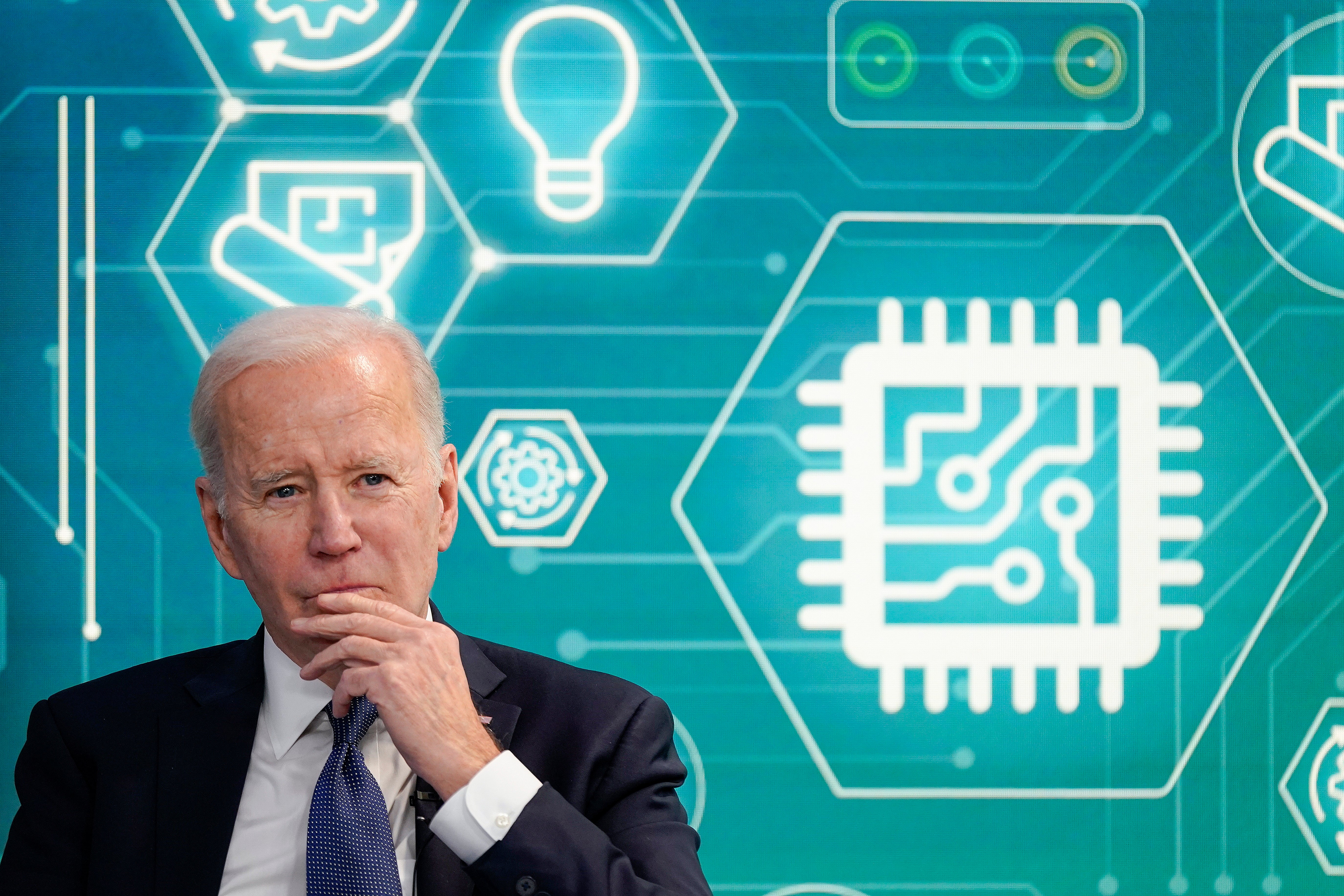Bill to boost semiconductor industry passes key Senate test
The Senate has advanced a $280 billion bill designed to boost the U.S. semiconductor industry and to accelerate high tech research that backers say will be critical to the economy in future decades

Your support helps us to tell the story
From reproductive rights to climate change to Big Tech, The Independent is on the ground when the story is developing. Whether it's investigating the financials of Elon Musk's pro-Trump PAC or producing our latest documentary, 'The A Word', which shines a light on the American women fighting for reproductive rights, we know how important it is to parse out the facts from the messaging.
At such a critical moment in US history, we need reporters on the ground. Your donation allows us to keep sending journalists to speak to both sides of the story.
The Independent is trusted by Americans across the entire political spectrum. And unlike many other quality news outlets, we choose not to lock Americans out of our reporting and analysis with paywalls. We believe quality journalism should be available to everyone, paid for by those who can afford it.
Your support makes all the difference.The Senate has advanced a $280 billion bill designed to boost the semiconductor industry in the United States and to accelerate high tech research that backers say will be critical to the economy in future decades.
The Senate needed 60 votes to advance the bill and the vote was 64-32. The legislation is now on a glidepath to final passage in the Senate later this week. The House is also expected to take up the package this week.
The White House has led support for the bill, along with industry leaders who say government subsidies are necessary to compete with other nations that are also spending billions of dollars to lure manufacturers. They say the pandemic has exposed the dangers to the economy and to national security of relying too heavily on foreign-made computer chips.
The bill provides about $52 billion in grants and other incentives for the semiconductor industry as well as a 25% tax credit for those companies that build chip plants, or fabs, in the U.S. The cost of the tax break is projected to be about about $24 billion over 10 years. The bill also authorizes about $200 billion to enhance scientific research over the same timeframe.
The Congressional Budget Office has projected that the bill would increase deficits by about $79 billion over 10 years. Critics have objected to the spending called for in the bill either as misplaced or excessive.
“At a time when the working families of this country are falling further and further behind while the very rich are getting much richer, let us get our priorities right," said Sen. Bernie Sanders, I-Vt.
But the bill attracted support from lawmakers in both parties who say the investment is critical to U.S. innovation and staying ahead of economic rivals in coming decades, namely China.
“I firmly believe that passing this bill will be a turning point for American leadership in this century," said Senate Majority Leader Chuck Schumer, D-N.Y. “The benefits of this legislation will reverberate across the country for years and decades to come."